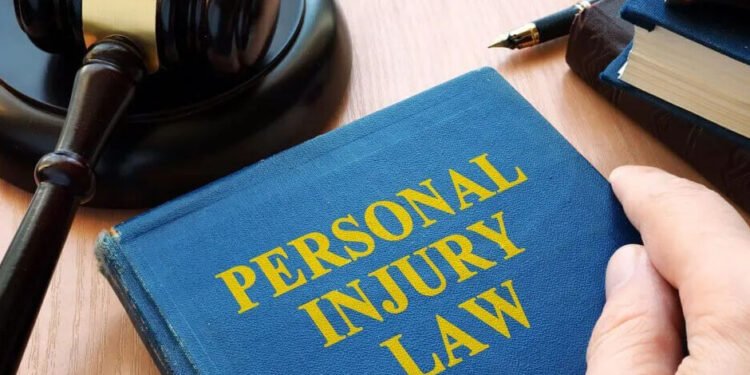Experiencing a personal injury can be a distressing and life-altering event. From medical expenses to emotional distress, the consequences of an injury can affect multiple areas of your life. Pursuing a personal injury lawsuit in Topeka is a legal pathway to seek compensation for the harm you’ve suffered. This article will explore the steps, requirements, and considerations involved in filing a personal injury lawsuit.
Understanding Personal Injury Lawsuits
A personal injury lawsuit is a legal dispute where an injured person, known as the plaintiff, seeks compensation from the person or entity responsible for causing harm. This harm could stem from car accidents, slips, and falls, workplace injuries, or medical malpractice. The primary goal of a personal injury lawsuit is to secure financial compensation to cover expenses such as medical bills, lost wages, and pain and suffering.
Personal injury law operates on the principle of negligence. To win a case, the plaintiff must prove that the defendant’s actions—or inactions—were negligent and directly led to the injury. Without clear evidence of negligence, the case may struggle in court.
Hiring a Personal Injury Lawyer
Before pursuing a lawsuit, it’s crucial to seek legal advice. Hiring a personal injury lawyer is often the first step. A skilled attorney can evaluate the specifics of your case, gather relevant evidence, and guide you through the complexities of legal procedures. They can also negotiate with insurance companies on your behalf, which can be crucial in securing a fair settlement.
Many personal injury lawyers work on a contingency fee basis, meaning they only get paid if you win the case. This arrangement can relieve some financial stress, allowing you to focus on recovery while your lawyer handles the legal work.
Gathering Evidence
Evidence plays a central role in any personal injury case. The stronger your evidence, the higher your chances of winning the lawsuit. Key forms of evidence include medical records, witness statements, photos of the accident scene, and surveillance footage if available. A personal injury lawyer can help collect and organize this evidence to build a compelling case.
Medical records are especially important as they demonstrate the severity of your injuries. Seeking medical attention promptly after an accident is essential not only for your health but also for strengthening your legal position.
Filing the Lawsuit
Once you decide to pursue a lawsuit, your attorney will file a complaint with the court. This document outlines the nature of your injury, the alleged negligence, and the compensation you are seeking. Filing this complaint initiates the legal process. The defendant then has a chance to respond, either admitting fault or denying the claims.
Many cases do not go to trial. Instead, they may be resolved through negotiations or mediation. If both parties can agree on a settlement, the lawsuit can end without a court appearance. However, if negotiations fail, the case proceeds to court, where a judge or jury will make the final decision.
The Discovery Process
If the lawsuit moves forward, both parties enter a phase called discovery. During discovery, each side investigates the other’s claims by exchanging information and gathering evidence. This phase can include depositions, where witnesses or involved parties provide sworn statements. Discovery helps both sides prepare for a potential trial by understanding the strengths and weaknesses of each argument.
Discovery can be lengthy, depending on the complexity of the case. During this period, your lawyer will continue to gather and analyze evidence, preparing for trial if a settlement cannot be reached.
Negotiating a Settlement
Settlement negotiations are common in personal injury cases. These negotiations can occur at any point during the lawsuit, even after discovery. A settlement means the defendant agrees to compensate you for your injuries without going to trial. Settling can save time, money, and stress, but it’s important to ensure that the settlement amount covers all your expenses.
Your attorney will play a crucial role in these negotiations. They will help assess whether an offer is fair and advise you on whether to accept or continue fighting for more compensation. Keep in mind that once a settlement is accepted, you usually cannot pursue further claims related to the same injury.
Going to Trial
If a fair settlement cannot be reached, your case may go to trial. In court, your lawyer will present evidence, call witnesses, and make arguments to convince the judge or jury that the defendant is liable for your injuries. The defense will also have the opportunity to present its case. Trials can be unpredictable, but a solid legal strategy increases the likelihood of a favorable outcome.
The court will decide on the compensation you deserve if you win. This compensation may cover economic damages like medical expenses and lost wages, as well as non-economic damages like emotional distress and reduced quality of life.
Receiving Compensation
Winning a personal injury lawsuit leads to receiving compensation through a court order or a negotiated settlement. Compensation can be a lump sum or a structured payment plan. Regardless of the method, the goal is to ensure you are fairly compensated for the impact of the injury.
In some cases, punitive damages may also be awarded. These damages aim to punish the defendant for particularly reckless or malicious behavior, serving as a deterrent for similar actions in the future.
Conclusion
Pursuing a personal injury lawsuit in Topeka is a step-by-step process that requires preparation, patience, and professional guidance. It can provide the financial relief necessary to cover medical expenses and help restore your quality of life. Hiring a competent attorney, gathering solid evidence, and understanding the legal process can increase your chances of securing fair compensation. While the path can be challenging, a successful outcome can bring both justice and closure.












